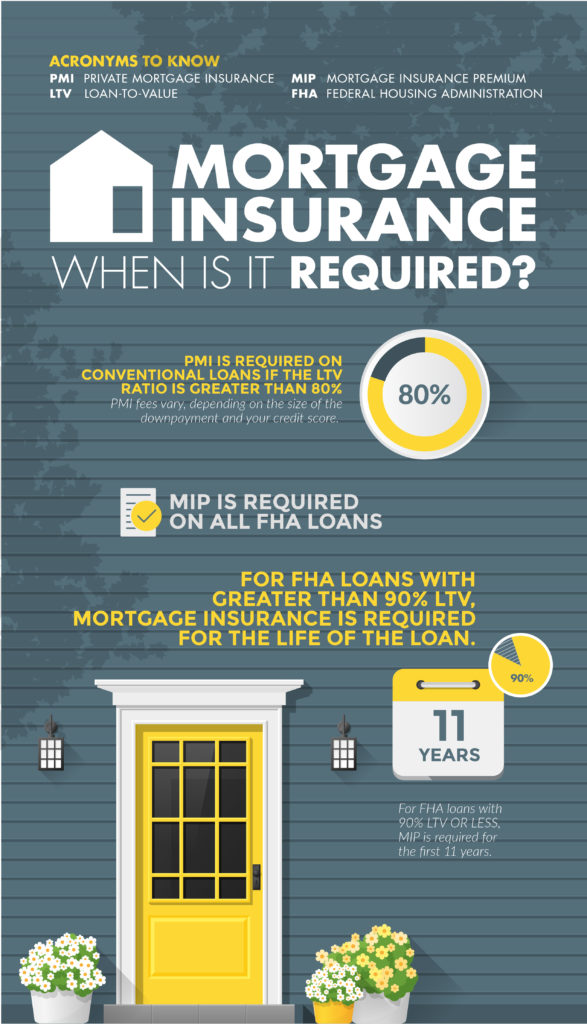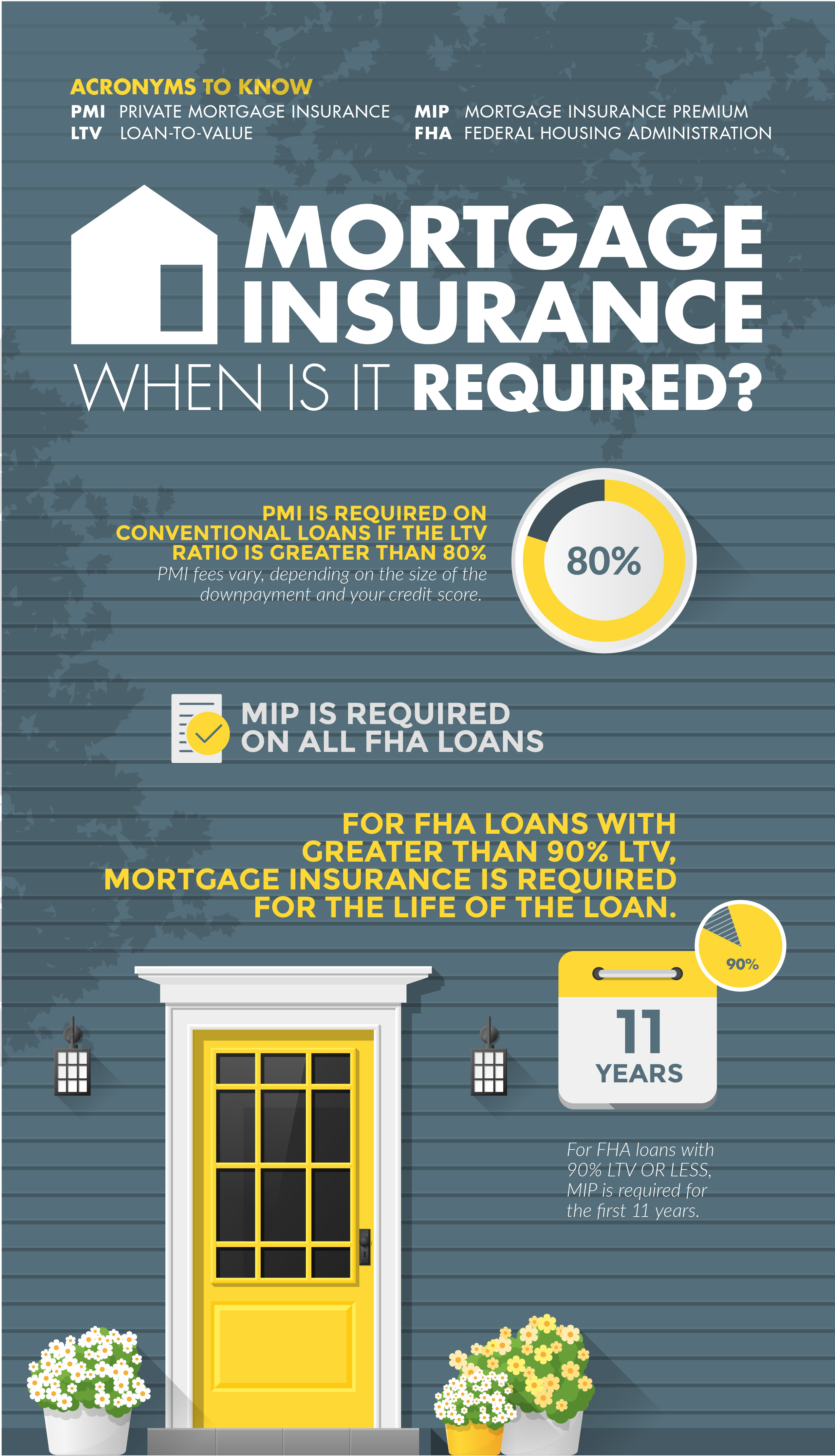
Mortgage Insurance, when do you need it? PMI is required on conventional loans if the loan to value ratio is greater than 80%. MIP (Mortgage Insurance Premium) is required on all FHA loans.
What Is Mortgage Insurance?
If you’re making a down payment of less than 20% on a home, it’s essential to understand what mortgage insurance is and how it works. Private mortgage insurance (PMI) isn’t just for people who can’t afford a 20% down payment. It’s also for people who don’t want to put down 20%, so they have more cash on hand for repairs, remodeling, furnishings, and emergencies.
What Is PMI?
If the concept of buying insurance on your mortgage sounds a little odd, you’re probably a newcomer to purchasing property or never put down a small down payment. Most lenders require PMI when a home buyer makes a down payment of less than 20% of the home’s purchase price – or, in mortgage-speak, the mortgage’s loan-to-value (LTV) ratio is more than 80% (the higher the LTV ratio, the higher the risk profile of the mortgage). And unlike most types of insurance, the policy protects the lender’s investment in the home, not yours. On the other hand, PMI makes it possible for people to become homeowners sooner.
PMI allows borrowers to obtain financing if they can only afford (or prefer) to put down just 5% to 19.99% of the residence’s cost, but it comes with additional monthly fees. Borrowers pay their PMI until they have accumulated enough equity in the home that the lender no longer considers them high-risk.
PMI costs can range from 0.25% to 2% (but typically run about 0.25 to 1%) of your loan balance per year, depending on the size of the down payment and mortgage, the loan term, and your credit score. The greater your risk factors, the higher the rate you pay. Also, because PMI is a percentage of the loan amount, the more you borrow, the more PMI you’ll pay.
How Long Do You Carry PMI?
On a conventional loan, the borrower can request that monthly mortgage insurance payments be eliminated once the loan-to-value ratio drops below 80%. Once the mortgage’s LTV ratio declines to 78% – meaning your down payment, plus the loan principal you’ve paid off, equals 22% of the home’s purchase price – the lender must automatically cancel PMI as required by the federal Homeowners Protection Act, even if your home’s market value has gone down (as long as you’re current on your mortgage).
For FHA loans, greater than 90% LTV MIP stays on for the life of the loan, If less than 90% LTV MIP is required for the first 11 years.
Conclusion
Mortgage insurance costs borrowers money, but it enables them to become homeowners sooner by reducing the risk to financial institutions of issuing mortgages to people with small down payments. You might find it worthwhile to pay mortgage insurance premiums if you want to own a home sooner rather than later for lifestyle or affordability reasons. Adding to the reasons for doing this: Premiums can be canceled once your home equity reaches 80% if you’re paying monthly PMI or split-premium mortgage insurance.
Call New Dwelling Mortgage to further discuss if a loan with PMI is right for you!

